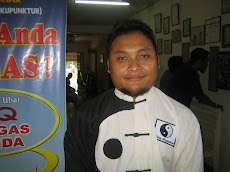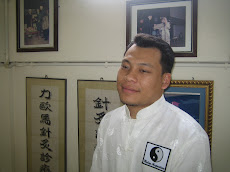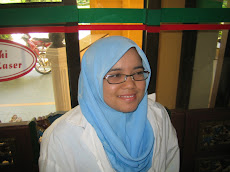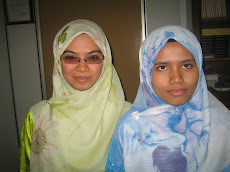The following is a literature review conducted for the Altmed.Creighton.edu site during the 4/2007 update. It is intended to present key information and findings from a search (using the term, "homeopathy") of English-language, randomized clinical trials, conducted on PubMed and journal databases made available through Creighton's institutional subscriptions.
Date ranges were restricted to 2003-06 to compliment the extensive Research Report of the National Center for Complimentary and Alternative Medicine, Publication No. D183 (PDF), whose findings are reproduced on this page. It is styled after the appendices of the aforementioned publication.
Clinical Trials on Homeopathy Published from 2003 to 2006
Citation Description Findings
Jacobs et al., 20074 A double-blind, placebo-controlled randomized trial of 60 patients in Honduras. Homeopathic remedy verum "showed no difference in outcomes" of patients with clinical diagnosis of dengue fever (only 3 of which have laboratory proven dengue)
Robertson et al., 20079 Randomized, double-blinded, placebo-controlled trial of 190 participants aged 18 years and over. Trial compared an oral homeopathic remedy, Arnica 30C to placebo in reducing the morbidity following tonsillectomy.
Authors found that patients receiving homeopathic treatment had significantly lower subjective pain scores. Otherwise, "the two groups did not differ significantly on analgesic consumption or any of the other secondary outcome measures."
Bull, 20072 Multi-centered, randomized trial with 70 children aged 6-13. Sunflower therapy showed "no statistically significant improvements in cognitive or Literacy test performance" in childhood dyslexia
Brinkhaus et al., 20061 Three randomized, placebo-controlled, double-blind, sequential trials. The homeopathic remedy, arnica montana was given to evaluate efficacy on swelling and pain following three types of arthroscopic surgery. Significance in pain reduction was declared (p=0.019) following one of three types, but the authors seemed to make no correction for multiple comparisons, thus capitalizing on chance variation. Their Bonferroni adjusted alpha should have been 0.0167 for any of three comparisons, thus the study actually failed to show differences from placebo.
Jacobs et al., 20065 Randomized, double-blinded, placebo-controlled trial of 292 children in Honduras. Homeopathic combination therapy had "no significant difference in the likelihood of resolution of diarrheal symptoms" in acute childhood diarrhea.
Fisher et al., 20063 Randomized, 2 of 4 arms double-blinded trial of 75 people. Measure of overall symptom severity for dermatitis showed "no outcome measure showed statistically significant between group differences" after correcting for baseline differences and multiple comparisons.
La Pine et al., 20067 Randomized, double-blind, placebo-controlled, crossover study of 34 people, 28 completed. Homeopathic remedy, No-Shift-Lag at 12C, was administered to ICU nurses working 3 consecutive 12hr night shifts, and assessing for fatigue. "Vigilance test was not significantly different when taking either the study preparation or the placebo."
Steinsbekk et al., 200511 Randomised parallel-group with waiting-list group as control trial of 169 children below age 10. Study of children with URTIs found "significant difference in median total symptom score" (p=0.026) and median number of symptomatic days(p=0.006), both in favor of homeopathic care.
Jacobs et al., 20056 Randomized, double-blinded, placebo-controlled trial of women with breast cancer history after completion of allopathic treatment. Study randomized to individualized homeopathic single remedy, combination, or placebo for menopausal symptoms states "no significant difference found in the primary outcome measure, the hot flash severity score." Study did find increasing general health score in both homeopathic groups vs placebo.
Thompson et al., 200513 Randomized, double-blinded, placebo-controlled trial of 45 women breast cancer survivors. Assessed individualized homeopathy for estrogen withdrawal symptom reduction. Found no evidence of a difference seen between groups. Admitted to a lack of statistical power on retrospective analysis.
Kim et al., 200513
Randomized, placebo- controlled, double-blind study of 40 total men and women. Assessing isopathic remedy (treatment was the allergen) for common allergies on four scales. "Scales from the RQLQ, MOS SF-36, and WPAI questionnaire showed significant positive changes from baseline to 4 weeks in the homeopathic group compared with the placebo group." Made at least 21 independent comparisons with Student's t-test to answer one question, while applying no correction in threshold for significance.
Bonferroni adjusted alpha would have been 0.00238 for any of 21 comparisons. Study may have shown significant change in "sleep problems" in homeopathic group of RQLQ (p=0.001). Study would have benefited highly from multivariate statistical analysis.
Systematic Reviews and Meta-Analysesk of Clinical Trials of Homeopathy
Citation Description Findings
Thachil et al 200712 Analyzed 19 randomized, controlled trials of several alternative medicine approaches including complex homeopathy. "None of the [Complimentary and Alternative Medicine] studies show evidence of efficacy in depression according to the hierarchy of evidence."
Vickers and Smith 200614 Cochrane systematic review of two studies using Oscillococcinum homeopathic remedy for influenza treatment and prevention. "No evidence that homeopathic treatment can prevent influenza- like syndrome." Patients did have greater chances of believing that the treatment was effective, and reported shorter duration of symptoms by a mean of 0.26 days
McCarney et al., 20048 Cochrane systematic review of 6 randomized, placebo-controlled, double-blind trials of 556 total people. Studies were mix of classic and isopatic homeopathy.
With regard to homeopathic treatment of asthma, "no trial reported a significant difference on validated symptom scales."
Smith, 200310 Cochrane systematic review of two placebo-controlled, double-blind trials involving 133 women. Low quality trials demonstrate "no differences in any primary or secondary outcome" with regard to placebo for third trimester cervical ripening or induction of labor.
k. In a systematic review, data from a set of studies on a particular question or topic are collected, analyzed, and critically reviewed. A meta-analysis uses statistical techniques to analyze results from individual studies.
References
1. Brinkhaus B., Wilkens J., Ludtke R., Hunger J., Witt C., Willich S. Homeopathic arnica therapy in patients receiving knee surgery: results of three randomised double-blind trials. Complement Ther Med. 2006 Dec;14(4):237-46. Epub 2006 Oct 13.
2. Bull, L. Sunflower therapy for children with specific learning difficulties (dyslexia): a randomised, controlled trial. Complement Ther Clin Pract. 2007 Feb;13(1):15-24. Epub 2006 Dec 15.
3. Fisher P., McCarney R., Hasford C., Vickers A. Evaluation of specific and non-specific effects in homeopathy: feasibility study for a randomised trial. Homeopathy. 2006 Oct;95(4):215-22.
4. Jacobs, J., Fernandez, E. Merizalde, B., Avila-Montes, G. and Crothers, D. The use of homeopathic combination remedy for dengue fever symptoms: a pilot RCT in Honduras. Homeopathy. 2007 Jan;96(1):22-6.
5. Jacobs J., Guthrie B., Montes G., Jacobs L., Mickey-Colman N., Wilson A., DiGiacomo R. Homeopathic combination remedy in the treatment of acute childhood diarrhea in Honduras. J Altern Complement Med. 2006 Oct;12(8):723-32.
6. Jacobs J., Herman P., Heron K., Olsen S., Vaughters L. Homeopathy for menopausal symptoms in breast cancer survivors: a preliminary randomized controlled trial. J Altern Complement Med. 2005 Feb;11(1):21-7.
7. La Pine M., Malcomson F., Torrance J., Marsh N. Night shift: can a homeopathic remedy alleviate shift lag? Dimens Crit Care Nurs. 2006 May-Jun;25(3):130-6.
8. McCarney RW, Linde K, Lasserson TJ. Homeopathy for chronic asthma. Cochrane Database of Systematic Reviews 2004, Issue 1. Art. No.: CD000353. DOI: 10.1002/14651858.CD000353.pub2.
9. Robertson A, Suryanarayanan R, Banerjee A. Homeopathic Arnica montana for post-tonsillectomy analgesia: a randomised placebo control trial. Homeopathy. 2007 Jan;96(1):17-21.
10. Smith CA. Homoeopathy for induction of labour. Cochrane Database of Systematic Reviews 2003, Issue 4. Art. No.: CD003399. DOI: 10.1002/14651858.CD003399.
11. Steinsbekk A., Fonnebo V., Lewith G., Bentzen N. Homeopathic care for the prevention of upper respiratory tract infections in children: a pragmatic, randomised, controlled trial comparing individualised homeopathic care and waiting-list controls. Complement Ther Med. 2005 Dec;13(4):231-8. Epub 2005 Oct 18.
12. Thachil, A., Mohan, R., Bhugra, D. The evidence base of complementary and alternative therapies in depression. Journal of Affective Disorders. 97 (2007) 23-35.
13. Thompson E., Montgomery A., Douglas D., Reilly D. A pilot, randomized, double-blinded, placebo-controlled trial of individualized homeopathy for symptoms of estrogen withdrawal in breast-cancer survivors. J Altern Complement Med. 2005 Feb;11(1):13-20.
14. Vickers AJ, Smith C. Homoeopathic Oscillococcinum for preventing and treating influenza and influenza-like syndromes. Cochrane Database of Systematic Reviews 2006, Issue 3. Art. No.: CD001957. DOI: 10.1002/14651858.CD001957.pub3.
This material for your information. It is not intended to substitute for the medical expertise and advice of your primary health care provider. We encourage you to discuss any decisions about treatment or care with your health care provider.
Thursday, October 7, 2010
Subscribe to:
Post Comments (Atom)
















No comments:
Post a Comment